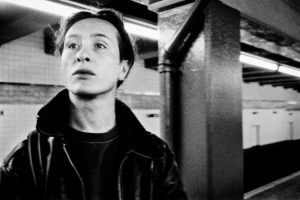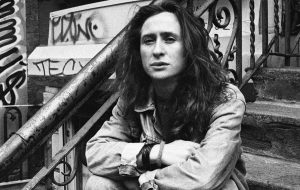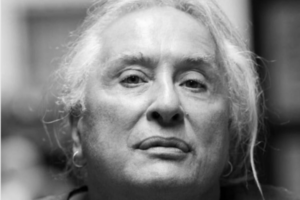by Maurizio Costanzo
It is simply called Purple the film ‘on the road’ which tells and traces the human events, the political formation and the militancy of the transsexual who, more than any other, from the 70s to today, has been the protagonist of the battles for the affirmation of rights: Marcasciano purple. We met her in Florence, where she presented the docufilm signed by Roberto Cannavò, on the occasion of the screening at the La Compagnia cinema, a special event of the LGBT+ History Month Italiain collaboration with the Florence Queer Festival and Ireos Association.
Porpora Marcasciano, have you ever imagined that your life could one day become a film?
“I certainly didn’t think so in the seventies and eighties, that is, in the evolution of things. Then, little by little, he took shape and in my opinion he arrived when it was right for him to arrive. I never imagined my life would become a film, a documentary for now, but more is in the works. In fact, my life, indeed my lives – because there are so many that I have spent and that I continue to live – would need more documentaries. I don’t want to be self-celebrating, but there have been many things, many very important aspects “.
Porpora Marcasciano, activist and transsexual politics, protagonist of the documentary “Porpora” by Roberto Cannavò
What did it mean to be trans in the 1970s and where are we in the battle for rights?
“Compared to the seventies, the years in which I began to take my first steps, a lot has changed. Much has been done but there is still a lot to do. Being trans was not easy at the time, it was not taken for granted and you had to invent the world. We are now here in Florence, which was an important city on this path: MIT was born here (Italian Transsexual Movement) which today is called Trans Identity Movement. Then she lived there in Florence Romanina, Romina Cecconi, who was sent to confinement in a southern town because she was considered a “morally and socially dangerous person”. So many things have also happened in this city. However, if today a possible, probable visibility is granted – we are in fact on television as a bit everywhere – it is also true that the form still lacks substance. And by substance I mean the rights “.
What idea did you have of the Zan Ddl?
“The Zan Ddl was a battle of civilization that would have put Italy on a par with the other European countries, with the civilized countries of the world. Simply because it would have safeguarded and protected trans people, but also gays, lesbians and others, from physical, psychological and I add also cultural violence. So having blocked it was a failure not for those who proposed and presented it, but I believe for the whole country “
Do you still experience discrimination and which ones weigh you the most?
“Discrimination, for me as well as trans people in general, is creepy. They exist and it would be absurd to say the opposite. I am also a victim of it, even if I occupy a role, a place – I am in the Municipal Council of Bologna – which protects me a little from all this. But you realize it from the gaze of the people, from the attitudes, from those ‘No’ that are subliminal messages that are sent to you. Then there are many trans people who are not only excluded, but also physically assaulted, and this is not good, it does not work and it cannot be possible “.

A very young Marcasciano Purple, now 64 years old (Lina Pallotta)
From your point of view, how are transsexual people represented on TV and the media?
“Let’s say that lately we are talking about them, also because they are occupying a very important role in world cinema, and this places them in a situation of visibility, complexity and clearly deepening. However, trans people continue to have a stereotypical image ”.
What is the most important battle, the one you are most proud of, of your life?
“I think the most important battle was, and still is, that of visibility. Being visible was risky and dangerous, even though it may not be visible anymore. Sanctioning a trans presence has meant widening the space for conquest. My visibility is now within an institution, the Municipality of Bologna, which has recognized in my figure the Presidency of the Commission for Equal Opportunities and I believe this is a great result “.

Icon of trans battles for half a century, of the younger self he says: “In the seventies I was like many people who wanted to change the world, they believed in change” (Lina Pallotta)
Do you think that true gender equality, beyond historical categories, is an achievable goal or is it to be considered a mere utopia?
“Much has been done and much remains to be done, with the conviction that there is no point of arrival, there is no clear, clear-cut goal. We live in a world and in a society that is fundamentally male chauvinistic and patriarchal. For me, for us, for different categories, this means not only conquering rights, but above all protecting, maintaining and defending them. Defense that is not taken for granted “.
Can you tell us something about your childhood and the moment you became aware of its diversity?
“Memories of my childhood are positive. The tragic ones begin in adolescence, in the period in which we are confronted with the world and when the awareness of being ‘different’ from others began in me. This diversity weighed heavily at the time, because those were the years when there were no points of reference, there was not even the word ‘Transsexual’. Being out of the ordinary was risky, dangerous, and more than anything else frustrating, because around you you felt a very deep loneliness “.
Could you tell us three words that should be saved or rediscovered, and three words that you would like to eliminate from the dictionary instead?
“If I were to abolish words, I would definitely delete ‘violence’, ‘war’ and ‘ugliness’. Instead, I would save ‘beauty’ that we so much need; ‘intelligence’ that declines in the plural – intelligences – accompanied by many questions, because we must always ask ourselves what is happening around us. It is happiness’. In my inauguration speech to the Municipality of Bologna I spoke of an objective: access to happiness ”.

Marcasciano was born in San Bartolomeo in Galdo (BN) on 15 September 1957. An activist, writer and Italian politician, she has been a reference figure in the battles for the rights of transsexuals since the 1970s.
Try to describe yourself: what was Porpora Marcasciano like in the 70s, how is it now and how does it look in 10 years?
“In the seventies I was like many people who wanted to change the world, who believed in change. We wanted to make the revolution but we didn’t. Instead, we have made many small revolutions. Now I see myself very happy because I imagined my maturity a little more problematic, but instead I continue to be interested, to get passionate and this keeps me a lot on. In ten years I can’t see myself, simply because the world is so constantly and rapidly changing that it doesn’t even allow me to think about what will happen tomorrow. For events beyond my control, I can therefore see myself in an hour, in a day, but I can’t more. However, I think that everything will become more beautiful, because the evolution of life and of the world goes in this direction: beauty ”.
